Sage Turner’s West Asheville backyard is buzzing with activity — literally. Three fat, fluffy chickens roll around in the black dirt under the suspicious gaze of one aloof cat while a few feet away thousands of honeybees are hard at work in five wooden hives.
“A lot of people think bees are really aggressive, but they aren’t,” Turner says as she stands by her Langstroth hives, her face and hands uncovered. “They’ll get agitated if you’re threatening their home, but really they just want to strengthen their colony and make their food.”
In addition to the bees in her backyard, Turner cares for two hives kept on the roof of her employer, the French Broad Food Co-op, in downtown Asheville.
“A lot of people keep bees for their honey, but I leave it in there,” Turner notes of both her personal hives and the co-op’s. “I got into this because I realized the dangers that honeybees and other varieties of bees were facing. For me it’s not about the honey; I’m doing this to support pollination and our pollinators.”
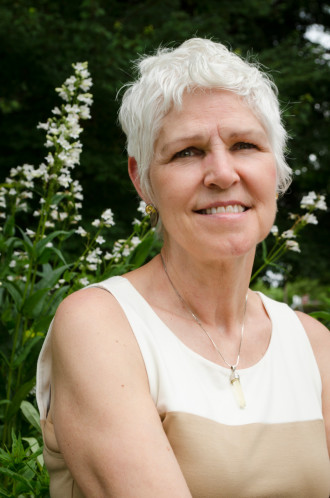
Turner is one of many local residents who have embraced the call of the bees. In fact, beekeeping is somewhat of a cultural phenomenon in Asheville, otherwise known as the inaugural Bee City USA.
The Bee City USA program was started by beekeepers in Buncombe County in the wake of colony collapse disorder — a phenomenon that led to a drastic loss of honeybee colonies in North America — as a way to encourage cities to educate the public about protecting pollinators.
“The pollinators are in serious trouble,” explains Bee City USA founder Phyllis Stiles. “The main thing we can do to help them is enhance their habitat — give them more safe, healthy places where they can not only find food, but they can find places to nest and overwinter.”
Since Asheville became the first Bee City in 2012, seven other metropolises have followed suit and attained the certification, including Carrboro, N.C., Talent, Ore., and, most recently, Phoenix, Ore., and Seattle, both of which gained certification in the last month.
Holding the Bee City title requires holding awareness events and “raising pollinator consciousness,” Stiles explains. In Asheville, that means more than a week of events — called Pollination Celebration — designed to invite the public into the world of the insects and birds that carry pollen from flower to flower.
This will be Asheville’s third annual pollinator week, and with events running from Thursday, June 11, until Sunday, June 21, the celebration aligns with National Pollinator Week sponsored by the North American Pollinator Protection Campaign.
“The honeybees always take the limelight because of colony collapse, but we really need to get everyone to think about all the pollinators,” Stiles says.
Events for the week include film screenings, a garden tour, a honey tasting, a beekeepers roundtable, a puppet show and even a stilt walker performance by the Faerie Kin troupe. The goal, say the organizers of Pollination Celebration, is that the events appeal to a wide-range of the public — from growers to homesteaders to schoolchildren — and hopefully inspire simple actions that can lead to positive changes.
“Our native pollinators are all impacted by habitat loss, pesticide use and a lack of food plants,” notes Lisa Wager, a botanist and retired professor from Clemson University. Wagner will lead a pollinator week presentation at the Botanical Gardens of Asheville to show homeowners and gardeners how using native plants in landscapes can provide crucial food for pollinators.
“In an urban landscape, it’s really crucial to use native plants so those native bees, butterflies and even other pollinators like wasps and hummingbirds have something to forage on,” she explains. “Even if you’re a newbie gardener, it’s pretty easy. It’s really about avoiding using plants that, as I like to say, ‘don’t work for a living’ — so meaning ornamental plants that have been really changed by selective breeding and don’t offer much food to pollinators.”
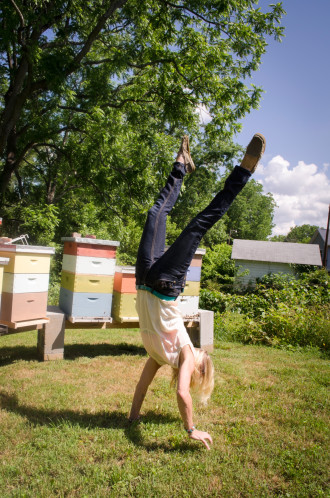
Stiles adds that other notable pollinator week events include two presentations by author and apiculturist Mark Winston as well as a presentation on marconature photography by photographer Clay Bolt. “If you’ve ever tried to take a picture of a bee, then you’ll really appreciate his photography because you’ll know that bees don’t stay still, and they’re just so tiny,” Stiles says. “His work allows us to see up close how they interact with the flowers.”
The week rounds out with a workshop and farm tour at Hop’n Blueberry Farm in Black Mountain and the annual Asheville GreenWorks Father’s Day Garden Tour. The Greenworks tour will feature eight private gardens in Biltmore Forest and allow attendees to learn more about pollinator-friendly natives such as wild geraniums, foamflowers, trilliums, bleeding hearts and bloodroot.
It may seem like a small thing to host a pollinator week, Stiles says, but she adds that seeing more Asheville residents and visitors care about their green spaces and the insects that depend on them is a significant accomplishment. “If you can catalyze your community to do that, to add it to their agendas, then you’re truly creating a buzz,” she notes. “With awareness comes empowerment and action, and now that people are more aware of just how crucial pollinators are to life on Earth, they’re willing to take action.”
Pollination Celebration kicks off at the Renaissance Asheville Hotel on Thursday, June 11, with seed bombs, the Faerie Kin stilwalkers, live music, a honey tasting and samples of Twin Leaf Brewery’s honey tea Belgian Saison beer.
Pollination Celebration schedule
Thursday, June 11
4-7 p.m.: Pollination Celebration Launch Party
Free. Held at Renaissance Asheville Hotel, 31 Woodfin St.
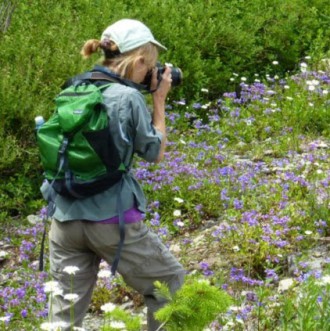
Saturday, June 13
10:30 a.m.-noon – Botanist Lisa Wagner presents “Native Plants for Pollinators”
Registration required; $12 members; $17 nonmembers. Held at The Botanical Gardens of Asheville, 51 W.T. Weaver Blvd.
1:30-7 p.m. – Wise Beekeepers Roundtable facilitated by Diane Almond
Registration required; $15; Held at Living Web Farms, 176 Kimzey Road, Mills River
Sunday, June 14
5:30-8 p.m.: Photographer Clay Bolt presents “The Dance: A Look at the Interwoven Lives of Pollinators, Plants and Predators.”
Free; Held in the Reuter Center at UNC Asheville
Monday, June 15
5-7:30 p.m.: Around the World Honey Tasting Adventure
$10; Held at Asheville Bee Charmer, 38 Battery Park Ave.
5:30 p.m.: Faerie Kin perform Enchanted Bees.
Free; Held at Pritchard Park in downtown Asheville
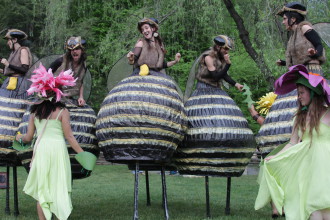
Tuesday, June 16
6:30 p.m.: Author Mark Winston presents “Value or Values? Audacious Ideas for the Future of Beekeeping.”
$10; Held at Mountain Horticultural Crops Research Station, 455 Research Drive, Mills River
Wednesday, June 17
6 p.m.: Author Mark Winston presents “Bee Time: Lessons from the Hive.”
Free; Held at Pack Library, 67 Haywood St.
Thursday, June 18
noon-2 p.m.: Interpretive pollinator garden stroll
Free; Held at USDA Forest Service Southern Research Station, 200 W.T. Weaver Blvd.
7 p.m.: Wings of Life documentary screening and panel discussion
$10. Held at the Fine Arts Theatre, 36 Biltmore Ave.
Friday, June 19
11 a.m.-noon – Hobey Ford and his Golden Rod Puppets perform Migration
Free but tickets required; Held at West Asheville Library, 942 Haywood Road
Saturday, June 20
10-11:30 a.m. – Guided Pollinator Walk with environmental educator and monarch specialist Kim Bailey
Free; Held at the Beaver Lake Bird Sanctuary
8:30 p.m.: Outdoor screening of The Bee Movie
Free; Held at Wedge Brewing Co., 37 Paynes Way
Sunday, June 21
1-5 p.m.: Asheville GreenWorks Father’s Day Garden Tour
$25/$20 advance; Held throughout Biltmore Forest
1-3 p.m.: Native Pollinator Workshop & Farm Tour
Registration required; $10 per family; 24 Middle Mountain Road, Black Mountain
For more information visit beecityusa.org/pollinator-week.html



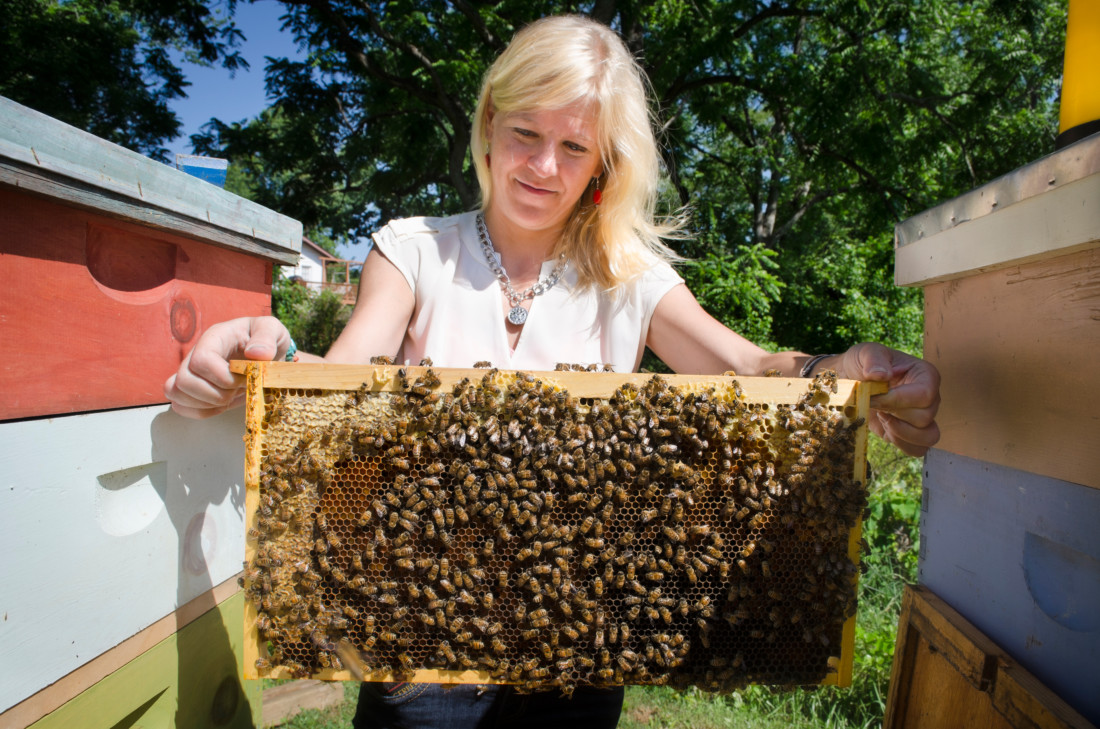

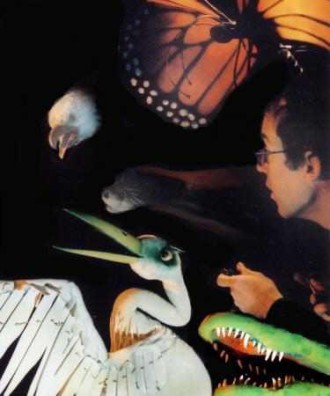

Hoorah for Sage Turner, Phyllis Stiles and all others who are doing good things for honeybees and other pollinators.
I’m a beekeeper. I too do it for the fun of it, not for the honey … though I’m hoping the sourwood nectar flow will be good this summer and that I can enjoy at least a couple of frames of delicious sourwood comb honey.
–Lan Sluder